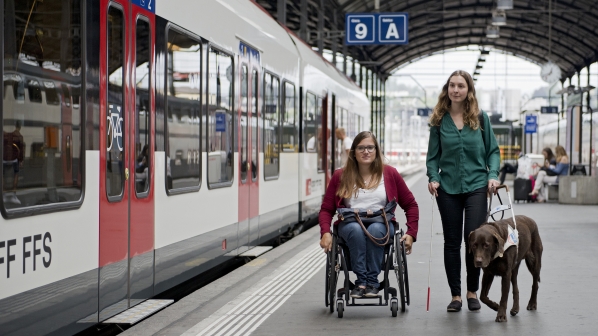The proposal, which was backed by European Parliament and Council negotiators at the start of the month, guarantees rerouting and help for passengers when there are delays and cancellations, improved access and assistance to people with reduced mobility, and help to create more dedicated spaces for bicycles.
“We managed to secure the same minimal passenger rights all over the EU when it comes to spaces for bikes, through-tickets and rights of passengers with reduced mobility,” says EU rapporteur, Mr Bogusław Liberadzki. “Those are important improvements in making rail travel more convenient and passenger-friendly.”
Rerouting and assistance in case of significant delays: If delays of more than 1h 40min occur, the operators will be obliged to reroute passengers in any way possible and assist travellers to find the best alternatives, as is the case with airlines.
Under the new rules, operators would have to provide through-ticketing on all their routes, covering all legs of the journey with a similar high level of protection.
Passengers with reduced mobility: The deal includes a shorter pre-notification obligation and better assistance for disabled passengers. Travellers with reduced mobility should notify the operator of their travel plans 24 hours in advance, down from 48 hours under the current rules.
Refurbishing trains for more bicycles: In an effort to provide more sustainable mobility and comfortable alternatives, all trains will have to be equipped with dedicated spaces and racks for bicycles.
The provisional agreement also ends the existing exemptions for long-distance domestic services by December 2024 and provides more clarity on what can be considered a force majeure. The new passenger rights will also cover regional services.
Pushback
There has been some pushback from some passenger rights groups who argue the regulations don’t go far enough.
“Rail is supposed to be central to meeting Europe’s climate objectives and post-Covid recovery efforts,” says Mr Agustin Reyna, director of legal & economic affairs at The European Consumer Organisation (BEUC). “However, the text adopted today falls far short of passenger expectations.
“The European Parliament recently voted for 2021 to be the European Year of Rail and for the EU’s ‘climate law,’ but this sends contradictory signals to consumers. This means that unfortunately, decision makers have let passengers down by not providing strong rights for rail as a more sustainable means of transport.”
Next steps
The proposal will now pass through a number of stages, including adoption by the Council of the EU as well as a second reading in the European Parliament with votes in the Tran committee and plenary session.
It will then be published in the Official Journal of the EU, becoming applicable 24 months later.

